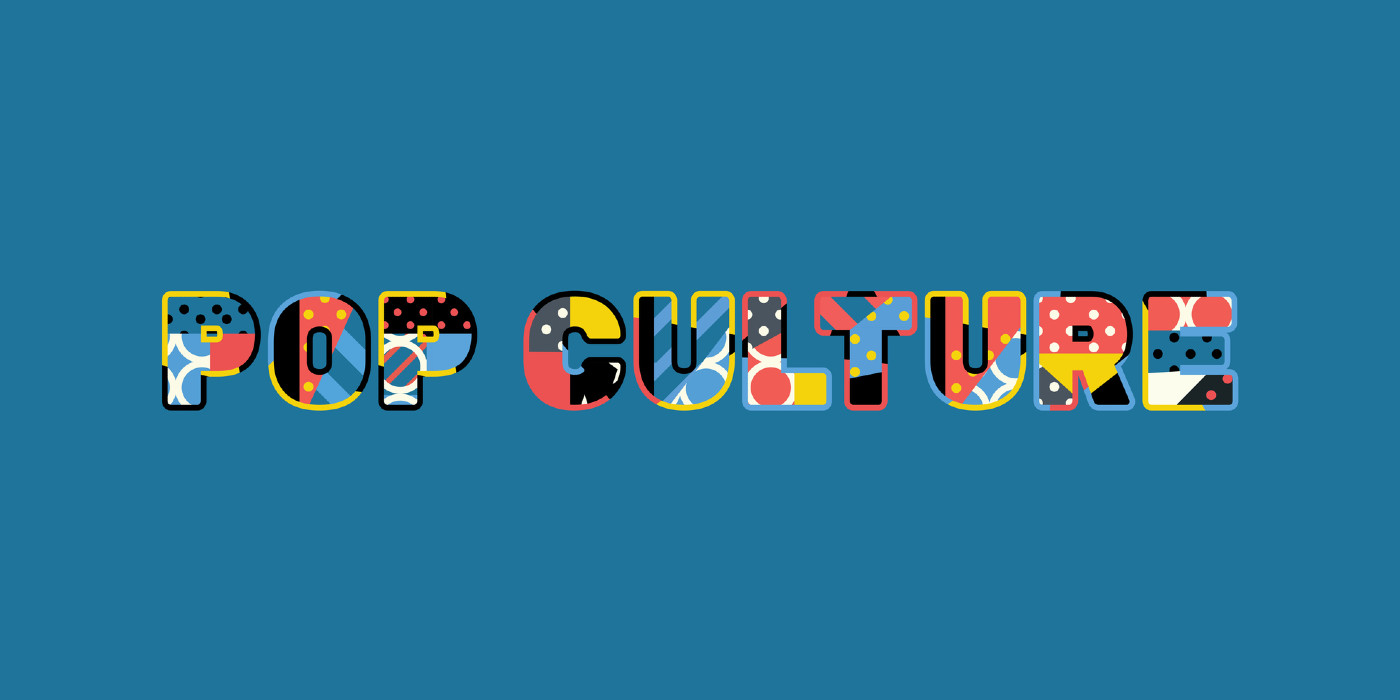Is Pop Culture Good for You?
Popular culture has changed over the decades. Television shows, music and different trends have come and gone. Not only has the media itself changed, but the mechanisms that deliver this media have also changed. With this transition, trends are short-lasting and the pop culture experience is less of a group experience and more of an individual one.

But does this change necessarily mean pop culture is getting worse?
Can modern pop culture have a negative effect on the population?
My answer is no.

More than ever, the population is able to connect to trends faster through social media.
Of course, we have people like Malcolm Gladwell who believe social media doesn't have any profound impact on meaningful causes. According to him, it only motivates people enough “to do the things that people do when they are not motivated enough to make a real sacrifice,” (Gladwell, 2010). Although Twitter may not be the best way to gather the population for physical, in-person activism, it still does a great job at spreading awareness. The same concept applies to all social media platforms and any form of media online.
The population is now able to connect ideas to each other more efficiently than ever. Various channels like music, television shows, social media, and podcasts allow people to communicate their ideas on a larger scale.
According to Phil Miller, he states that the definition of popular culture is "when certain ideas, interests or choices reach a critical mass within a society, they become widespread and proliferate through the society," (Ted, 2015).
Social media has the power to do this. So do songs, shows and podcasts. Around 5 billion people use social media. Anything you post has the power to go viral, set trends and help connect you with thousands of people. Just a single post or idea can become widespread within seconds. Although we have more options and individual choice, we are still brought together by these millions of pieces of media.
Miller argued that pop culture is dead. The example he used was the Elvis Presley vs Cliff Richard situation. It had a huge impact on the population from the way they wore their hair to the way they spoke and much more. It was a group experience. Now services like iTunes and Spotify allow people to have their own individual experiences and face a different form of pop culture. Miller's argument is that pop culture is dead because it's supposed to be a group experience which is not the case anymore.
That is not true. Star Wars was a group experience that changed culture. It changed the film industry, technology and the toy industry. Even the way people watched movies has changed. This is just Star Wars. You can use any example of a modern show, piece of media or song. I guarantee it has had some sort of profound impact on a group of people. Even modern songs like PSY's "Oppa Gangnam Style" had the power to make millions of people smile across the world. It brought people together through a shared viewing and listening experience (Ted, 2013).
Even modern television shows are produced with strategy. They are built to make the population smarter. Steven Johnson makes a strong argument for modern entertainment aiding our intellectual ability. As we consume these shows, our brains make connections with the emotional lives of the characters and analyze the actions in order to fill in the gaps. When our brains focus on the plot, it maps out narrative threads, fills in missing pieces and arranges social connections. These challenges allow the brain to combine its natural cognitive ability with the systems of the show to produce a strengthened intellect. Some shows make references to other situations in the show, but a viewer would only catch it if they paid attention and tracked the events that were occurring in sequential order.
Steven Johnson states, "Beneath the violence and ethnic stereotypes, another trend appears: to keep up with entertainment with 24, you have to pay attention, make inferences, track shifting social relationships," (p. 279). From a surface level perspective, a show that demonstrates violence and stereotypes may be seen as negative. However, that does not take away from its ability to challenge the brain and strengthen its intellect.
Even the things that may seem not-so-great for us (like tv shows) are actually benefiting us.
Politics, religion, social issues, and cultural values divide us. The stuff that goes viral make us smile. When we consume media that makes us smile, it brings us together (Ted, 2013).
Like Alexandre O. Philippe said, "I think one thing that makes America so great to the rest of the world, above all else, is the fact that we are the first civilization in human history to have made fun important," (Ted, 2013).
We must acknowledge that pop culture brings us together and benefits the population as a whole.

Excellent!
ReplyDelete